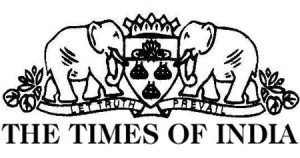Supreme Court’s Rafale judgment is contrary to international judicial precedents showing claims of ‘secrecy’ are hollow
The decision of the Modi Government to buy 36 Rafale fighter jets from Dassault Aviation, a French company, was upheld by the Supreme Court recently. The judgment says in para 25 that the pricing details were already “shared with the Comptroller and Auditor General (CAG) and the report has been examined by the Public Accounts Committee; only a redacted portion of the report was placed before the Parliament and is in public domain”. None of it is true, however. And, the Central Government has hurriedly filed an application to ask for removal of that part. It says that it never said so in its sealed cover to the Supreme Court.
The Government is right. It had only said that “the Government has already shared the pricing details with the CAG. The Report of the CAG is examined by the PAC. Only a redacted version of the Report is placed before the Parliament and in public domain”. Clearly, the Government did not say or mislead the Supreme Court into believing what the Supreme Court said. “The Report of the CAG is examined by the PAC” is a statement of how a CAG report generally traverses its course. The part that says that a redacted portion is placed before the Parliament and enters into the public domain is a state of future and could hardly be construed as a lie or deception. In a pleading before a Court of law, a sentence or statement generally draws its meaning from the surrounding context. Here, the context for the Government’s words is not one of fraud or deception.
However, unlike what the Central Government hopes to secure with its application, the judgment now stands vitiated by reason of what is said in para 25; it is one of the critical pillars supporting the judgment. Therefore, the outcome of the judgment can no longer be the same should para 25 lose those critical conclusions of “facts” that never took place. Therefore, the Court will have to summarily remove its own judgment and rehear the issue.
On a different note, it is not difficult to see that the judgment marks a new low for the Supreme Court and unfortunately, for Chief Justice Ranjan Gogoi whose judgments in many cases displayed a sense of statesmanship. The judgment is a throwback to the law that existed when India secured her independence from the British. After the Bofors scandal, India has tightened her defence procurement laws and subjects it to layer upon layer of administrative and parliamentary scrutiny.
Surprisingly, in this case, the Central Government speaks of the CAG as if it is a department of the Government and bound by its diktat or preferences. The fact, however, is that the CAG is an independent entity under the Constitution and is expected to apply its mind independently towards the audit of spending by the Government. For instance, the CAG recently criticised and put out photographs of multiple patients forced to share the same bed in a poorly functioning ESI hospital in Okhla, New Delhi. To ask the CAG to accede to secrecy in the Rafale deal is much like asking it to shelve its ESI report on the ground of patient privacy.
International judicial precedents show claims of ‘secrecy’ are dubious
The claim of “secrecy” in the Rafale judgment is dubious and here’s why. The international defence market is infested with corruption. Over the past five years, India has emerged as the largest arms importer in the world and also, scores poorly on the transparency index. Expectedly, “secrecy” in defence contracts makes corruption possible on a very large scale.
Our Supreme Court does not appear to be aware of the role of Courts in other jurisdictions while scrutinising defence deals. In 2010, BAE Systems, the largest defence contractor in Europe, pled guilty before a US Court for indulging in corruption in its overseas defence deals through its US Subsidiary and was slapped with a penalty of 400 million US Dollars.
Courts outside India hold a better record than us in punishing wrongdoing and corruption in defence acquisitions by India. In 2014, an Italian Court imposed a fine of 7.83 Million Euros on two subsidiaries of Finmeccanica, a company in which the Italian government held a 30% stake. One of the names of the two subsidiaries might be familiar to you – AgustaWestland. And, 2017 set a new high for corruption in international defence deals when a London Court imposed a fine of a record-setting sum of 497 million pounds on Rolls-Royce, a leading engineering company. Rolls-Royce was charged with indulging in corruption and false accounting in its defence deals in India, among others. That Court went on to say that the case involved “the fact of substantial harm to the integrity of national or local Indian government”.
And, what were the terms of the Rafale contract, anyway? Our Central Government and now, the Supreme Court wants us to remain ignorant, in the national interest. Let’s say, you buy several iPhones from an authorised Apple showroom in India and don’t want to reveal the model that you have purchased. It makes sense to be tightlipped as the showroom prices of different iPhone models are standardised, and it is easier to make an informed guess. Combat fighter aircraft are, however, not sold in any showroom and have no standardised rate card. The price of a combat aircraft in an international defence agreement is somewhat arbitrary, and the price of an individual aircraft reveals more of the exchange rate of different currencies and the bargaining power of both sides to the transaction than it could reveal about different features of that aircraft.
Added to it, the defence technologies operate under a very different legal and institutional regime today than was the case decades earlier. Any claim by a military manufacturer to possess a particular technology — technology that could only be claimed after field trials open to independent inspectors and publication, subject to patents that are publicly accessible, the topic of extensive discussion in peer-reviewed and widely read scientific journals, mostly generated by companies that are registered in countries that are parties to the 2014 United Nations Arms Trade Treaty that substantially curtails secrecy of the technology involved in global arms trade and finally, assembled in large plants and factories that employ hundreds of engineers and also, sweepers and cleaners that may also get to know a few things about the supposed abilities of the aircraft they toil for – must appear suspect to a Court of law that knows better.
Also, given that Dassault Aviation is merely a publicly trading company subject to the typical shareholder cries for ever more dividends, even the army men in India might want to know if there are clauses within the Rafale contract that limit the manufacturer Dassault Aviation’s freedom to do business with India’s adversaries – China, Pakistan and countries aligned with. It is needless to say that the experience in other countries must render the secrecy in Rafale contract extremely worrisome. For instance, the United States government draws a comprehensive contract when it makes a defence procurement and provides stringent punishment for fraud. Yet, a US government report in 2011 documented that it had spent more than 1.1 trillion US dollars in the past decade to award defence contracts to companies that were already convicted or fined for “fraud” in earlier defence contracts – companies that are among the biggest in the world.
So, how does the Rafale agreement play out if there is underperformance or failed discharge of contractual obligations by either side? On a lighter side, will the Rafale fighter jets adorn the traditional Republic Day parade for fear of inciting guesswork over its capabilities and price?
The Supreme Court should reconvene the Court soon, take note of the application filed by the Government, desist from criticising the Government, set aside its judgment summarily and set down the matter for a fresh hearing. More importantly, the Supreme Court should restore public confidence in its further proceeding by directing its Registry to publish on its website, the complete sealed content filed by the Central Government.
[The author is an advocate practising in the Supreme Court of India.]
The post Supreme Court’s Rafale judgment is contrary to international judicial precedents showing claims of ‘secrecy’ are hollow appeared first on TheLeaflet | An Imprint of Lawyers Collective.
Thank you for viewing this legal update on Lex Do It. For more legal news and updates do not forget to subscribe and share! Read Original Post





